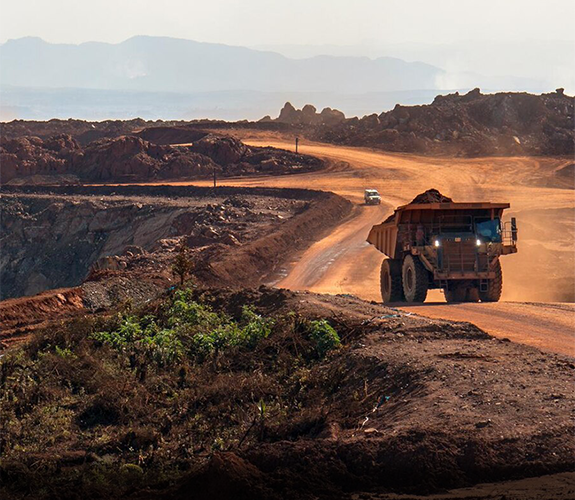Why Gold Mining is Becoming a Strategic Industry in India
Gold has been a symbol of wealth, prosperity, and cultural significance in India for centuries. It continues to be one of the most in-demand precious metals in the country today. India is the world’s second-largest consumer of gold, yet its domestic production is minimal. This increasing gap between demand and supply has highlighted the importance of developing a strong gold mining sector—making gold mining a strategic industry in India.
We have been exploring the reasons why gold mining companies are gaining strategic relevance, how they’re driving economic growth, and the role of new-age mining initiatives in shaping India’s future.
Rising Domestic Demand and Economic Pressure
India’s annual gold demand averages between 700–900 tonnes, primarily driven by jewelry, investment, and religious purposes. However, the country's domestic gold production is only around 1–2 tonnes per year. The remaining requirement is met through imports, which significantly impacts the trade deficit and puts pressure on the foreign exchange reserves.
A robust gold mining company in India can help reduce reliance on imports and stabilize the country’s current account. This economic shift is pushing gold mining into the spotlight as a strategic national priority.
India's Untapped Gold Reserves
India holds a vast but largely untapped gold reserves. As per the Geological Survey of India, the country has over 500 million tonnes of gold ore, concentrated in regions like Karnataka, Madhya Pradesh, Rajasthan, Jharkhand, and Andhra Pradesh.
The government has taken active steps to auction mining blocks and encourage exploration. This provides a golden opportunity for gold mining companies to invest in exploration, extraction, and production—unlocking new value from beneath India’s soil.
National Security and Economic Resilience
Gold is not only valuable but also acts as a safeguard during times of financial uncertainty. Whether during inflation or geopolitical conflict, gold retains its value and plays a Vital role in global economic security.
A strong domestic supply of gold ensures that India is less vulnerable to global price fluctuations and trade disruptions. By supporting the growth of a reliable gold mining company in India, the country strengthens its position in managing crisis scenarios through internally sourced resources.
Employment and Regional Development
Gold mining operations, often located in rural and underdeveloped areas, bring with them a surge in job creation and infrastructure development. From skilled geologists and engineers to machine operators and support staff, gold mining companies support thousands of jobs directly and indirectly.
Additionally, mining-related activities stimulate the growth of roads, power facilities, healthcare, and education in local regions—making gold mining a tool for inclusive and sustainable development.
Policy Reforms and Investor Interest
Recent reforms by the Indian government have made the mining sector more attractive to private investors. Key policy changes include:
- Mineral Laws (Amendment) Act, 2020
- Transparent auctioning of mining blocks
- 100% FDI in mineral exploration
- Single-window clearance systems for project approvals
These measures have sparked interest among domestic and global investors. Companies like Kundan Minerals and Metals have responded by strategically acquiring and exploring mining blocks in key gold-rich regions, aligning with the government’s vision of boosting self-reliance.
Adoption of Advanced Mining Technologies
Modern gold mining companies are increasingly using advanced tools such as 3D geological modeling, AI-based exploration, automated drilling systems, and eco-friendly refining technologies. These innovations have made mining more efficient, safer, and sustainable.
Moreover, refining methods such as cyanide leaching, gravity concentration, and smelting are being optimized to extract maximum value from even low-grade ores—making projects viable and profitable.
Environmental and Social Responsibility
Sustainability has become a key component of modern mining operations. Many gold mining companies in India are now aligning their operations with ESG (Environmental, Social, Governance) standards. Key sustainable practices include:
- Zero-discharge waste systems
- Land rehabilitation through afforestation
- Efficient water use and recycling
- Renewable energy usage in mining sites
These responsible approaches not only meet legal requirements but also build trust with local communities and global stakeholders.
Investment Opportunities and Economic Diversification
As global gold prices remain strong and demand continues to grow, India’s gold mining sector is attracting increased attention from private equity, institutional investors, and foreign mining firms.
Companies like Kundan Minerals and Metals are positioning themselves to benefit from these opportunities by focusing on both exploration and value-added refining, thus contributing to broader industrial diversification.
Conclusion
The growing emphasis on gold mining in India is no longer just about tapping into natural resources—it is about strengthening the economy, reducing import dependency, creating employment, and fostering sustainable development. With abundant reserves, progressive government reforms, rising demand, and the entry of technologically advanced gold mining companies, India is poised to become a key player in the global gold production landscape.


Comments
Post a Comment